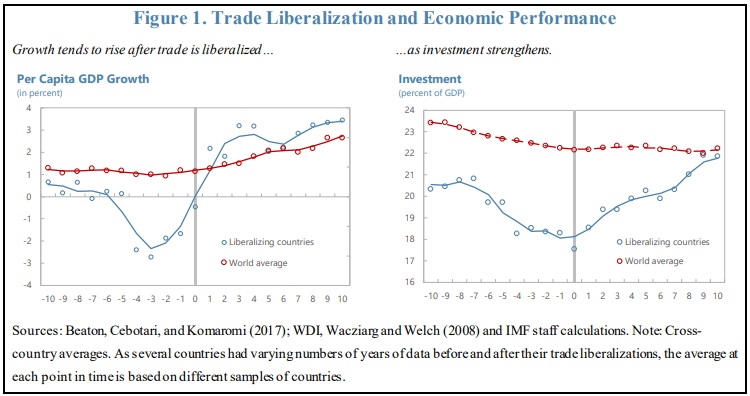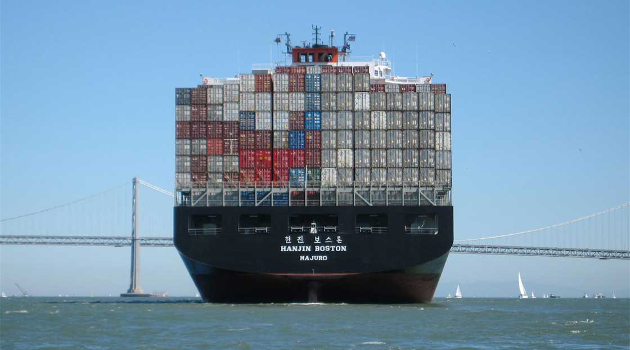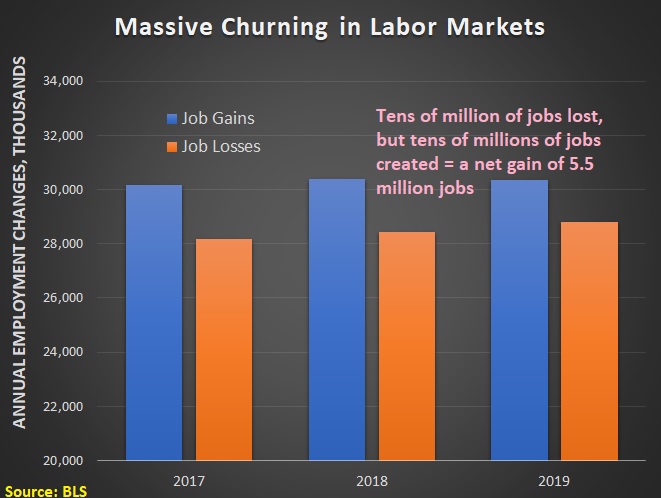I’m a knee-jerk supporter of free trade, which simply means I don’t think politicians and bureaucrats should be able to interfere with my freedom to buy good and services from people who happen to live in other nations.
But my support for free trade is not just based on ideology. I also cite data on how trade taxes and other restrictions make nations poorer.
Simply stated, trade barriers (like other forms of government intervention) make an economy less efficient.
And the negative effects go beyond overall economic output. Researchers also find job losses, lower productivity, and increased inequality.
Today, let’s look at some new research on this topic. The IMF earlier this year released a new working paper authored by Kim Beaton, Valerie Cerra, and Metodij Hadzi-Vaskov.
Here are the main results.
…firms in countries and industries experiencing greater competition from imports reduce employment slightly. …Even so, the low elasticity of employment growth to imports indicates a limited adverse impact. …Contrary to popular belief and anti-globalization sentiment, import competition is associated with higher average wage growth across the global sample of firms…, driven by the EMDEs… Taking employment and wages together, import growth in an industry leads to a rise in the wage bill of domestic firms in the same industry. Thus, while import competition generates some job dislocations, the overall impact on earnings of workers in the same industry is positive.
Here’s a chart that was included with the study.

One unexpected finding from the study is that rich nations are more likely to enjoy job gains.
The job loss associated with import competition appears to be dominated by the behavior of firms in emerging and developing economies… In contrast, the import shock provides a statistically significant positive boost to firms’ employment in advanced economies.
And here’s a finding that should not surprise anyone.
…we find relatively positive outcomes of import competition on exposed firms, including higher sales, profits, wage growth, and investment. Moreover, the import shock to exposed firms, and the ensuing employment changes, do not take place in isolation. Import growth often goes hand in hand with export growth, which spurs job creation.
But I didn’t like everything I found in the paper. In some circumstances, trade reduces inequality, but by hurting those with high incomes rather than helping those with low incomes.
Our results also show that firms experiencing higher imports shocks are those with higher average wage levels. Thus, to the extent that employment growth is lower in these more exposed firms, it could lead to lower inequality.
For some of our friends on the left, this is a good outcome. Crazy.
Fortunately, trade generally helps everyone, so this quirky result is an exception rather than the rule.
The bottom line is that free trade is an overall winner for the economy. Does that mean that everyone benefits in short run? Of course not.
Jobs always get destroyed when there’s competition. And that’s true whether the competition comes from inside a country or outside a country.
The goal, of course, is to have a vibrant economy that regularly produces plenty of new jobs to offset any job losses.
———
Image credit: Mgunn | Public Domain.




